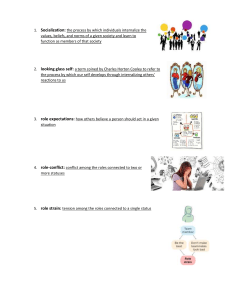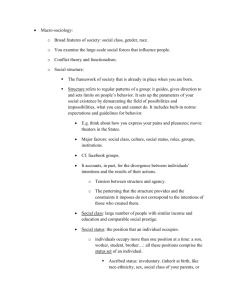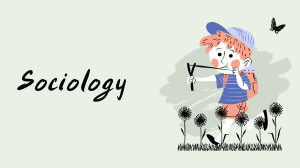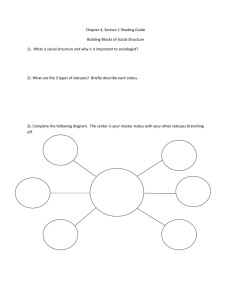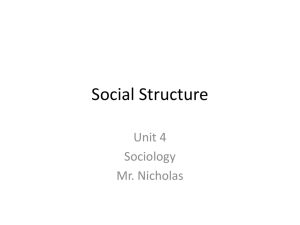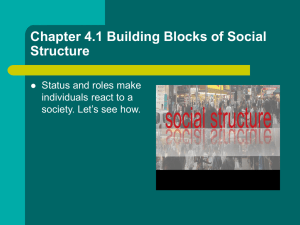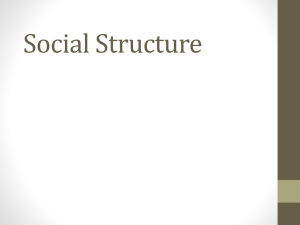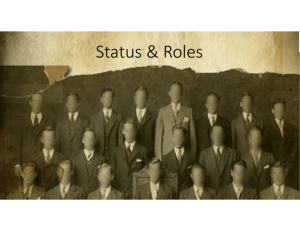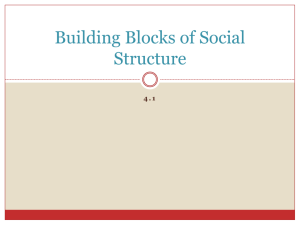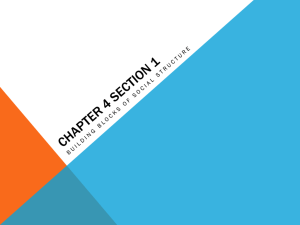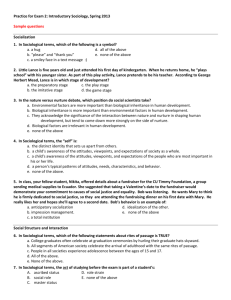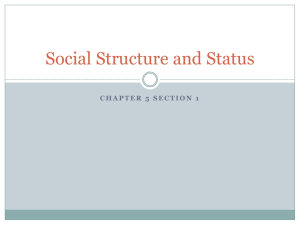Sociology Final Exam Study Guide: Deviance & Core Concepts
advertisement
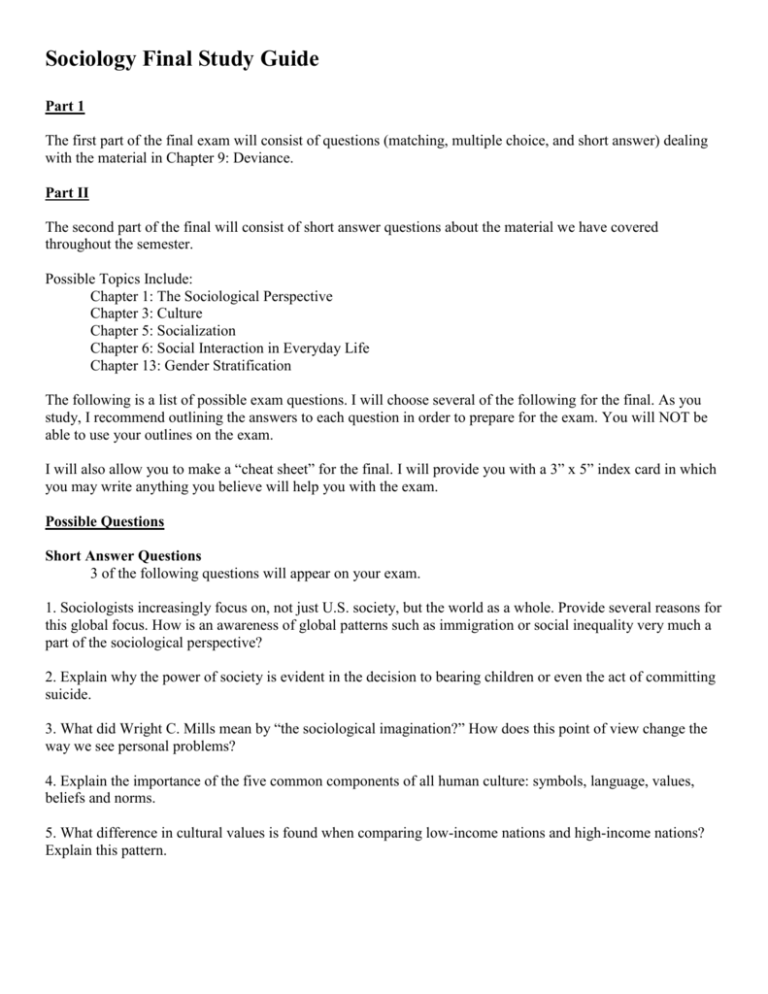
Sociology Final Study Guide Part 1 The first part of the final exam will consist of questions (matching, multiple choice, and short answer) dealing with the material in Chapter 9: Deviance. Part II The second part of the final will consist of short answer questions about the material we have covered throughout the semester. Possible Topics Include: Chapter 1: The Sociological Perspective Chapter 3: Culture Chapter 5: Socialization Chapter 6: Social Interaction in Everyday Life Chapter 13: Gender Stratification The following is a list of possible exam questions. I will choose several of the following for the final. As you study, I recommend outlining the answers to each question in order to prepare for the exam. You will NOT be able to use your outlines on the exam. I will also allow you to make a “cheat sheet” for the final. I will provide you with a 3” x 5” index card in which you may write anything you believe will help you with the exam. Possible Questions Short Answer Questions 3 of the following questions will appear on your exam. 1. Sociologists increasingly focus on, not just U.S. society, but the world as a whole. Provide several reasons for this global focus. How is an awareness of global patterns such as immigration or social inequality very much a part of the sociological perspective? 2. Explain why the power of society is evident in the decision to bearing children or even the act of committing suicide. 3. What did Wright C. Mills mean by “the sociological imagination?” How does this point of view change the way we see personal problems? 4. Explain the importance of the five common components of all human culture: symbols, language, values, beliefs and norms. 5. What difference in cultural values is found when comparing low-income nations and high-income nations? Explain this pattern. Extended Response/ Essay Questions 2 of the following questions will appear on your exam. 6. Give examples of three norms, three mores, and three folkways in U.S. Culture. Then, answer this question: how was your choice of norms, mores, and folkways, affected by your background and your social standing? 7. What are specific contributions to human development made by family, school, peer group, and mass media? Do these agents of socialization always convey the same lessons to people? In your response, provide several specific examples. 8. Define all the key concepts relevant to statuses and roles: status, master status, ascribed statuses, achieved statuses, role, role conflict, role set and role strain, then select one of the concepts (either status or Role) and describe how it applies to your own life. For example, what are your ascribed statuses and your achieved statuses, and in what situations have you experienced role strain or role conflict. 9. In our society, all people are socialized into definitions of “maleness” and “femaleness.” Describe the lessons about gender you have learned in your schooling, from kindergarten to the present. Start with the earliest years in your schooling and list the gender lessons you learned in elementary school, junior-high school, and in high school. In what ways has gender stereotyping been perpetuated through your personal experiences? How would you change the American classroom to eliminate stereotypes?
